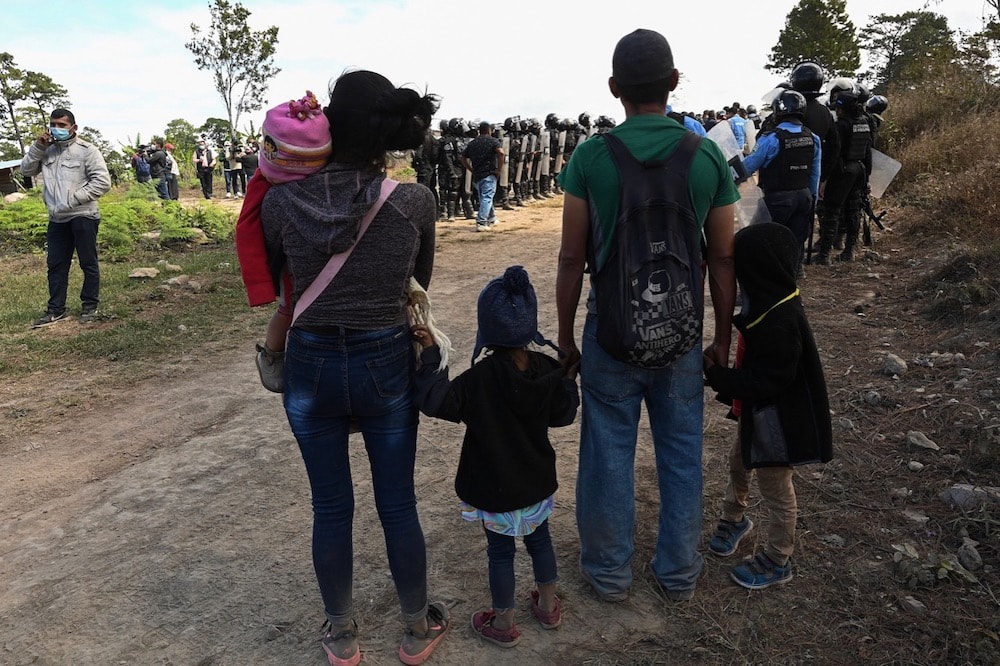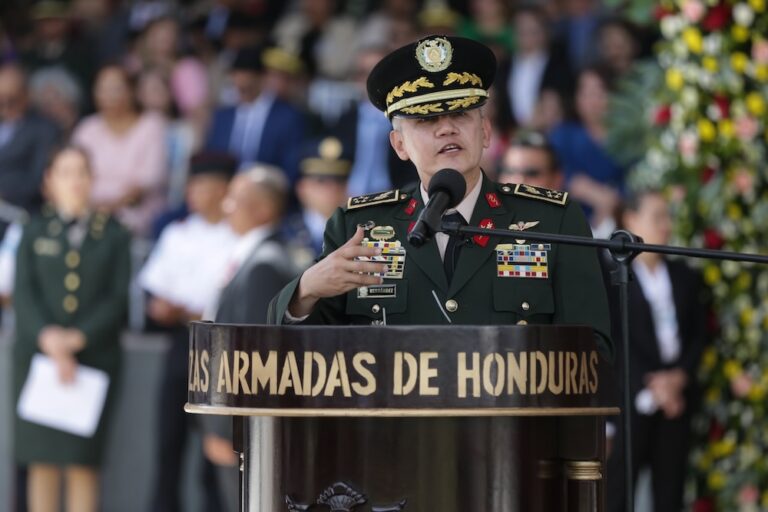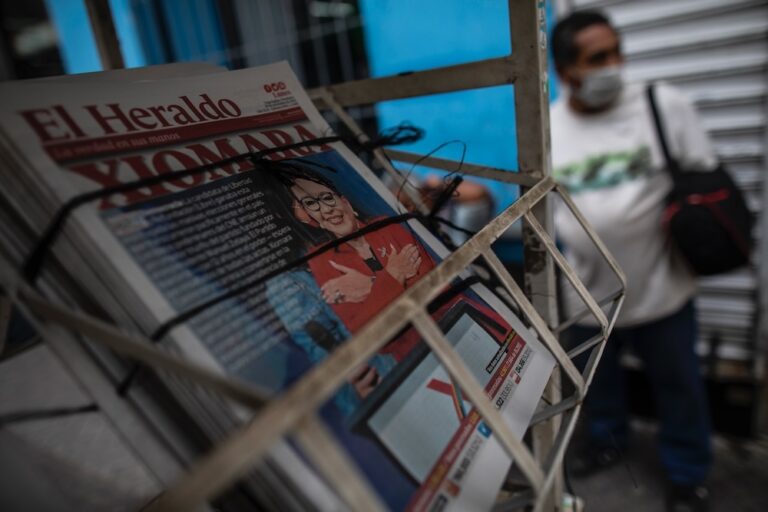CPJ: "Land rights are an issue of fundamental concern to Indigenous and rural communities in Honduras and across the region, and community journalists must be able to cover these stories without being treated like criminals."
This statement was originally published on cpj.org on 29 July 2022.
On May 22, Juan Argueta, a landowner in the municipality of San Jose, filed a criminal complaint against Pérez, a correspondent for the local broadcaster Radio Progreso, accusing her of trespassing and damage to private property, according to news reports, a report by Radio Progreso, and the journalist, who spoke to CPJ via phone.
In the complaint, which CPJ reviewed, Argueta alleged that Pérez had trespassed on his property while covering the eviction of dozens of Indigenous people from the area on May 18, according to those sources.
A criminal court in the municipality of Marcala, in the western department of La Paz, held an initial hearing in the case on June 19, Pérez said. In a subsequent hearing on Thursday, July 28, prosecutors asked for the case against Pérez and her co-defendants to be dropped, citing a lack of evidence, according to Radio Progreso, which said a court decision was expected on Friday.
“Land rights are an issue of fundamental concern to Indigenous and rural communities in Honduras and across the region, and community journalists must be able to cover these stories without being treated like criminals,” said CPJ’s Latin America and the Caribbean program coordinator Natalie Southwick, in New York. “Honduran authorities should drop the criminal charges against Sonia Pérez, allow her to work freely, and stop prosecuting journalists for doing their jobs.”
During that June 19 hearing, the court prohibited Pérez from leaving the country or approaching Argueta, and ordered her to report to the judiciary every 30 days while the case was ongoing, the journalist said.
Argueta’s complaint alleged that Pérez was a member of the Nueva Palestina Indigenous council, a group representing the leadership of the Lenca community, whom police had evicted from that land on May 18. The complaint accuses 30 members of the Lenca Indigenous community of trespassing and damaging property.
The Honduran prosecutor’s office also issued a statement claiming that Pérez was part of the council after “being found among a group of people who claimed to own the land in 2020.”
Pérez told CPJ that, while she is a member of the Lenca Indigenous group, “I’m not a council member. I was there reporting as a journalist.”
If convicted of trespassing, Pérez could face up to four years in prison, and damaging private property carries a prison term of up to five years, according to the Honduran criminal code. Argueta’s complaint also accused the journalist of “changing boundaries,” or attempting to change a property line, which can carry a prison term of up to four years, according to the criminal code.
When CPJ emailed Honduran judiciary spokesperson Melvin Duarte for comment, he responded with a document repeating Argueta’s allegations and declined to comment further. CPJ was unable to find contact information for Argueta.
Radio Progreso broadcasts to a national audience from the town of El Progreso, near the northern city of San Pedro Sula, according to the outlet’s website. Pérez started working for the outlet in 2018 and covers local issues, including social movements, politics, and corruption, according to the coordinator of the broadcaster’s press department, Iolany Pérez, who spoke to CPJ by phone.
In 2011, Radio Progreso manager Nery Orellana was shot and killed by unidentified assailants in the western department of Lempira.



